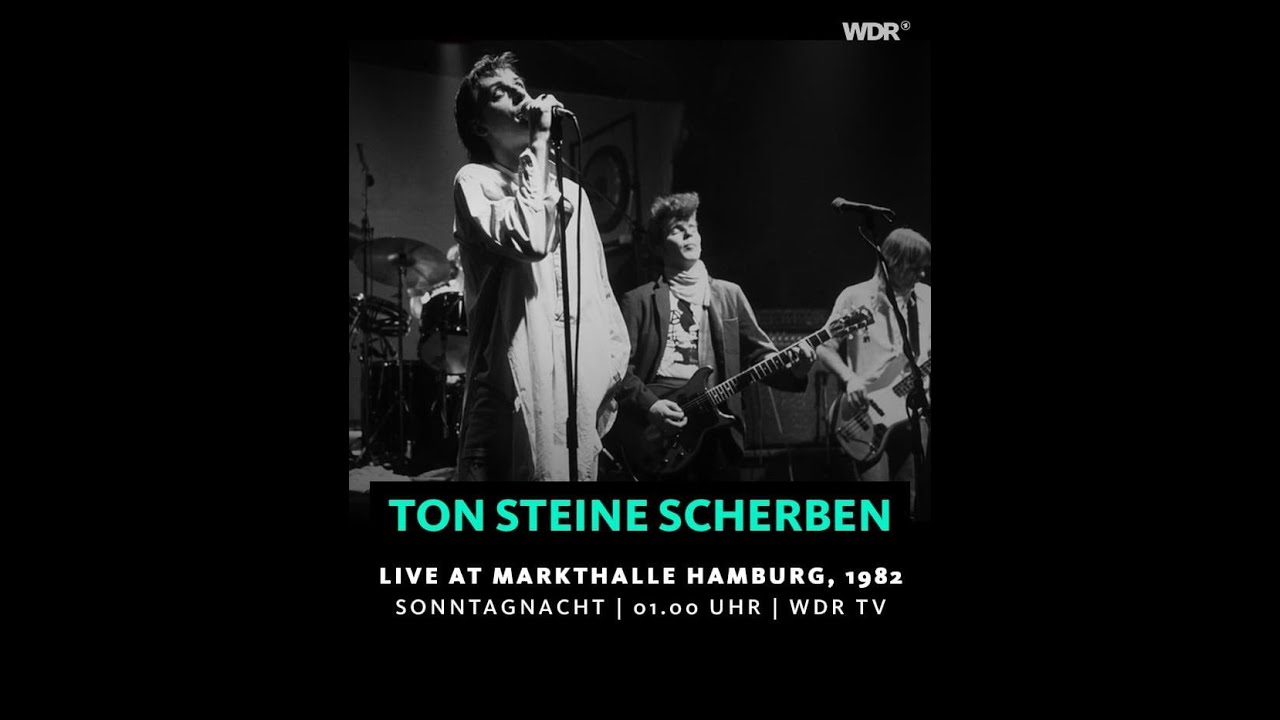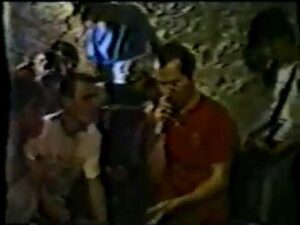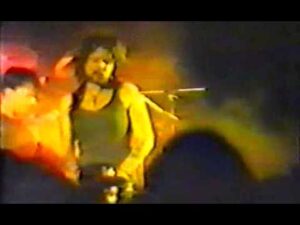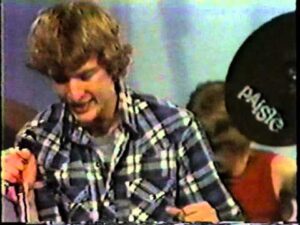Formation & Members
Ton Steine Scherben, often referred to simply as “Die Scherben,” was a pioneering band in the German punk and hardcore scene. The group was formed in 1970 in West Berlin, a city then characterized by its vibrant countercultural movements. The band was founded by vocalist Rio Reiser, guitarist Ralph Möbius (also known as Ralph Steitz), bassist Kai Sichtermann, and drummer Wolfgang Seidel. From its inception, Ton Steine Scherben was more than just a band; it was a collective of artists and activists committed to using music as a tool for social change.
The lineup of the band shifted over the years, with key members coming and going. Notably, drummer Seidel was replaced by Funky K. Götzen in the mid-1970s, and Nikel Pallat joined as a second vocalist and guitarist, bringing with him a raw energy that defined much of Scherben’s sound. Despite these changes, the core ethos of the band remained consistent, rooted in a commitment to authenticity and revolutionary ideals.
Musical Style & Characteristics
Ton Steine Scherben’s sound was a fusion of punk rock and German rock with elements of folk and blues. Their music was characterized by its raw, unpolished aesthetics and heartfelt lyrics. Unlike many of their contemporaries, Scherben sang primarily in German, a bold choice at a time when English was the dominant language of rock music. This decision underscored their desire to connect directly with the German-speaking audience and address local socio-political issues.
The band’s music often featured heavy guitar riffs, driving bass lines, and powerful drumming, creating a sound that was both aggressive and melodic. Their lyrics—often penned by Rio Reiser—were politically charged and deeply introspective, touching on themes of freedom, anti-establishment sentiment, and personal liberation. Songs like “Keine Macht für Niemand” became anthems for the leftist movements in Germany and resonated with audiences seeking change.
Key Works & Discography
Ton Steine Scherben released a series of influential albums throughout their career that have left an indelible mark on the music scene. Their debut album, “Warum geht es mir so dreckig?” (1971), set the tone for their politically charged, raw sound. The album included tracks like “Macht kaputt, was euch kaputt macht,” which became rallying cries for disenchanted youth.
Their 1972 album, “Keine Macht für Niemand,” solidified their status as icons of the German counterculture. The title track remains one of their most recognized songs, embodying the spirit of rebellion that the band was known for. Subsequent albums, such as “Wenn die Nacht am tiefsten…” (1975) and “IV” (1981), further explored themes of personal and societal liberation, with the latter featuring more refined production techniques while maintaining their gritty sound.
The band’s discography is not vast but each release is considered seminal, capturing the zeitgeist of a tumultuous era in German history while also showcasing the band’s evolving musical prowess.
Influence on Other Bands/Scenes
Ton Steine Scherben’s impact on the punk and hardcore scenes in Germany and beyond cannot be overstated. They were among the first bands to use music as a platform for political activism in the post-war period, setting a precedent for others to follow. Their decision to sing in German inspired a wave of bands to embrace their native language, fostering a uniquely German punk identity.
Beyond their linguistic influence, Scherben’s DIY ethic and uncompromising stance on artistic integrity served as a blueprint for countless bands. Their music and message resonated with a new generation of German musicians who carried the torch forward, including bands like Die Toten Hosen and Einstürzende Neubauten. The band’s commitment to social justice and equality also resonated with punk scenes outside of Germany, contributing to the global punk narrative.
Breakups or Reunions
The band’s journey was not without its challenges. Financial struggles and internal tensions plagued Ton Steine Scherben throughout their career. By the early 1980s, these issues, compounded by the pressures of living up to their revolutionary image, led to the band’s eventual disbandment in 1985. However, their influence never waned, and demand for their music continued to grow.
Following the death of Rio Reiser in 1996, there was a renewed interest in Ton Steine Scherben, leading to several reunion concerts and tribute events. In the years since, surviving members have occasionally come together for special performances, celebrating the band’s enduring legacy and the timeless relevance of their message.
Current Reputation & Legacy
Ton Steine Scherben is now regarded as one of the most important bands in the history of German music. Their contributions to the punk and hardcore genres have been recognized by critics and fans alike, and their music continues to inspire new generations. The band’s fearless approach to tackling social and political issues set a standard for those who followed, and their songs remain relevant in today’s sociopolitical climate.
In the decades since their breakup, Ton Steine Scherben have been the subject of numerous documentaries and retrospectives that explore their impact on music and culture. Their work is celebrated not only for its artistic merit but also for its role in shaping a generation of politically conscious musicians and fans.
Conclusion
Ton Steine Scherben’s legacy is a testament to the power of music as a force for change. From their humble beginnings in West Berlin to their status as icons of German punk, the band has left an indelible mark on the world. Their fearless pursuit of truth and justice through music has inspired countless others to follow in their footsteps, ensuring that their message of resistance and empowerment continues to resonate today.
As we look back on the contributions of Ton Steine Scherben, it is clear that they were more than just a band; they were a movement. Their music continues to speak to the struggles and aspirations of people everywhere, reminding us that the spirit of punk is alive and well, as relevant now as it was when Scherben first took to the stage.









